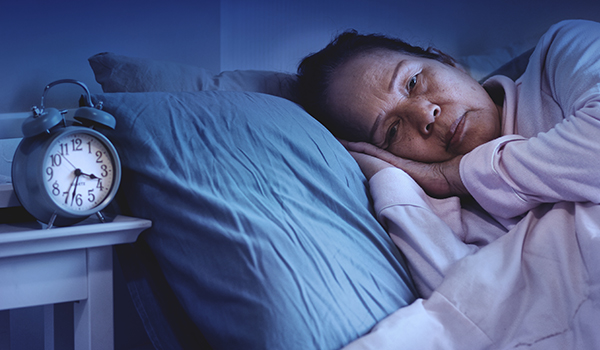How Sleep Affects Blood Sugar Levels

How Sleep Affects Blood Sugar Levels
Good sleep is often overlooked when discussing diabetes management, yet it plays a crucial role in regulating blood sugar levels and improving insulin sensitivity. Whether you have Type 1, Type 2, or gestational diabetes, the quality and quantity of your sleep can have a significant impact on how well you manage your condition.
In this article, we will explore how poor sleep affects blood sugar, the science behind it, the vicious cycle created by poor sleep, and practical ways to improve sleep quality to regulate blood sugar effectively.
How Does Sleep Affect Your Blood Sugar?
Sleep is one of the most critical factors influencing blood sugar regulation. Lack of sleep or poor sleep quality can lead to higher blood sugar levels, insulin resistance, and weight gain, all of which make diabetes harder to manage.
Scientifically: How Sleep Affects Blood Sugar
The relationship between sleep and blood sugar regulation is profound, with poor sleep significantly affecting your body’s ability to manage glucose effectively. Here’s an exploration of the key scientific mechanisms that explain how sleep deprivation impacts blood sugar and insulin sensitivity:
1. Lack of Sleep and Insulin Resistance
Insulin resistance is a hallmark of Type 2 diabetes, and it’s a key factor that worsens blood sugar control. When you don’t get enough sleep, your body becomes less responsive to insulin, which is the hormone responsible for moving glucose into your cells for energy.
- What happens: Inadequate sleep interferes with the body’s ability to use insulin effectively. As a result, glucose remains in the bloodstream longer, causing blood sugar levels to rise.
- The impact: Even a single night of poor sleep, around 4 to 5 hours, can trigger temporary insulin resistance, making your body react like you’re in a prediabetic state, even if you’re otherwise healthy.
- Why it matters: This means that high fasting blood sugar and elevated post-meal glucose levels can occur, making diabetes management more challenging. Over time, frequent disruptions in sleep quality can worsen insulin resistance and blood sugar control.
2. Sleep Deprivation Boosts Stress Hormones
Poor sleep doesn’t just affect insulin; it also triggers the release of stress hormones like cortisol and adrenaline. These hormones are a part of your body’s “fight or flight” response, and when they spike, they raise your blood sugar levels.
- What happens: Cortisol and adrenaline prompt the liver to release stored glucose into the bloodstream, contributing to an increase in blood sugar.
- The impact: Chronic sleep deprivation leads to sustained insulin resistance, a condition where your body struggles to regulate glucose effectively. Over time, this leads to high blood sugar levels and worsened control of diabetes.
- Why it matters: This disruption can make it harder to control blood sugar levels, increasing the long-term risk of Type 2 diabetes, as well as complications such as heart disease and kidney damage.
3. Sleep Deprivation Increases Sugar Cravings
One of the unexpected consequences of poor sleep is its impact on hunger hormones. When you’re sleep-deprived, your body produces more of the hormone ghrelin, which stimulates appetite, and less of leptin, the hormone that tells you when you’re full.
- What happens: With elevated ghrelin levels and reduced leptin, you’re more likely to crave sugary foods and carbs, even if you aren’t physically hungry. These cravings can result in overeating and blood sugar spikes.
- The impact: This behavior leads to fluctuating blood sugar levels, and when sugar-rich foods are consumed, insulin resistance worsens.
- Why it matters: The combination of increased sugar consumption and blood sugar fluctuations caused by poor sleep creates a cycle that’s tough to break. Over time, this increases your risk of developing obesity and complications related to diabetes.
4. The Vicious Cycle of Poor Sleep and High Blood Sugar
The connection between poor sleep and high blood sugar is cyclical, meaning each issue exacerbates the other, leading to a vicious loop:
- High blood sugar levels during the night can lead to frequent urination, which disrupts sleep.
- Lack of sleep increases insulin resistance, contributing to higher blood sugar the following day.
- Stress, which is often a result of poor sleep, can trigger more hormone imbalances, causing further elevation in blood sugar.
Why it matters: Breaking this cycle is essential. Without addressing the root cause, poor sleep, chronic high blood sugar can develop, which significantly raises the risk of developing long-term diabetes complications, such as cardiovascular diseases, nerve damage, and kidney issues.
Sleep and Diabetes Risk
Recent studies have shown that poor sleepers are 2–3 times more likely to develop Type 2 diabetes compared to those who get adequate sleep. One of the factors contributing to this higher risk is sleep apnea, a condition that disrupts sleep by causing breathing difficulties.
Why it matters: Sleep apnea is particularly common among those who are overweight or have diabetes. It worsens blood sugar control by repeatedly interrupting sleep and exacerbating insulin resistance.
How to Improve Sleep for Better Blood Sugar Control
Managing blood sugar goes beyond just diet and exercise; it’s equally about getting the right amount of sleep. Sleep directly influences your insulin sensitivity, blood sugar levels, and overall health. By improving your sleep quality, you can support your body’s natural ability to manage blood sugar.
Here are simple and effective ways to improve your sleep and help control blood sugar levels naturally:
1. Build a Consistent Sleep Routine
A consistent sleep schedule is crucial for regulating your body’s circadian rhythm and improving insulin sensitivity. Consider these tips to establish a sleep-friendly routine:
- Go to bed and wake up at the same time every day, even on weekends. This helps set your body’s internal clock.
- Limit screen exposure at least 1 hour before bed to reduce blue light’s impact on your sleep cycle.
- Keep your bedroom cool, dark, and quiet to create an optimal sleep environment.
- Avoid heavy meals, caffeine, and intense workouts close to bedtime, as they can disrupt sleep.
Why it matters: A consistent sleep schedule not only helps improve sleep quality but also boosts blood sugar control by optimizing your body’s natural rhythms.
2. Use Natural Sleep Aids (With Your Doctor’s Approval)
Sometimes, sleep difficulties may arise despite following a routine. In such cases, natural sleep aids can help, especially if you’re looking for alternatives to prescription sleep medication. Here are some options that can promote restful sleep:
- Magnesium-rich foods like pumpkin seeds and leafy greens.
- Chamomile tea, known for its calming properties.
- Ashwagandha or valerian root, herbs known to reduce stress and improve sleep quality.
- Melatonin supplements (only for short-term use, and with doctor guidance).
Why it matters: These natural remedies, when used under the supervision of your healthcare provider, can help you relax, reduce stress, and get the sleep your body needs to manage blood sugar.
3. Create a Relaxing Bedtime Wind-Down Routine
The way you prepare for bed has a profound effect on your sleep quality. Incorporating a wind-down routine signals to your body that it’s time to relax and prepare for sleep. Here’s how to do it:
- Spend 5 minutes doing deep breathing exercises to calm your nervous system and lower stress levels.
- Practice gentle yoga or stretching to release physical tension.
- Write down 3 things you’re grateful for. This simple practice can help quiet your mind and relieve stress.
Why it matters: A relaxing bedtime routine doesn’t just make it easier to fall asleep; it also helps improve blood sugar regulation by lowering stress and creating a peaceful mental state before bed.
Final Word: Sleep is a Core Pillar of Blood Sugar Control
Incorporating better sleep hygiene into your daily life is essential for managing blood sugar levels and improving overall health. Just like diet and exercise, sleep is one of the core pillars of diabetes management. Prioritizing 7–9 hours of good-quality sleep each night can improve insulin sensitivity, help stabilize blood sugar, and reduce the risk of complications.
By following the practical tips outlined in this article, you can take charge of your sleep and your health. Remember, good sleep is not just about feeling rested; it’s about supporting your body’s ability to manage blood sugar and reduce the risk of diabetes-related complications.
Written by:
Dr. Laura Chen, MD, Endocrinologist
Dr. Laura Chen is a board-certified endocrinologist specializing in diabetes care. Her focuses on helping her patients manage their blood sugar through comprehensive lifestyle changes, including diet, exercise, and sleep management.
Reviewed by:
Michael Tan, RD, Registered Dietitian
Michael Tan is a registered dietitian with over 10 years of experience helping individuals manage their diabetes through nutrition. He emphasizes the importance of balanced eating, proper sleep, and lifestyle changes in diabetes management.
References:
- A single night of sleep deprivation increases ghrelin levels and feelings of hunger in normal-weight healthy men. J Sleep Res. https://pubmed.ncbi.nlm.nih.gov/18564298/
- World Health Organization. Cardiovascular diseases (CVDs). WHO. https://www.who.int/news-room/fact-sheets/detail/cardiovascular-diseases-(cvds)
- U.S. Food and Drug Administration. FDA Approves First Medication for Obstructive Sleep Apnea. https://www.fda.gov/news-events/press-announcements/fda-approves-first-medication-obstructive-sleep-apnea
- Exploring the Role of Circadian Rhythms in Sleep and Recovery: A Review Article. Cureus. https://pmc.ncbi.nlm.nih.gov/articles/PMC11221196/






